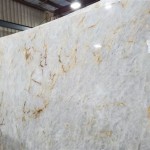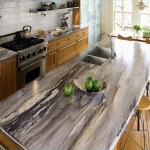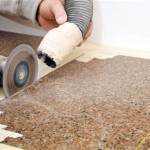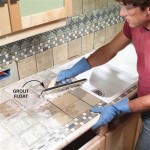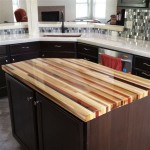The Best Way to Seal Granite Countertops
Granite, with its natural beauty and durability, has become a popular choice for kitchen countertops. However, this beautiful stone requires proper care and maintenance to preserve its luster and protect it from stains. Sealing granite countertops is an essential part of this maintenance, creating a protective barrier against spills and everyday wear and tear. While the specific method may vary depending on the sealant chosen, the process is generally straightforward and can be done by most homeowners.
Why Seal Your Granite Countertops?
Granite is naturally porous and prone to staining. Oils, wine, coffee, and acidic liquids can easily penetrate the stone, leaving unsightly marks. Sealing granite countertops creates a protective layer that repels liquids, preventing them from soaking into the stone and causing stains. A properly sealed countertop will also be easier to clean, as spills can be wiped away before they have a chance to penetrate the surface.
Beyond stain prevention, sealing granite countertops also helps protect them from scratches and etching. This is particularly important in areas where the countertops are exposed to heavy use, such as near sinks or cooking areas. A sealed surface resists scratches and abrasion, preserving the granite's polished finish and extending its lifespan.
Choosing the Right Sealant
The first step in sealing your granite countertops is choosing the right sealant. There are various types of sealants available, each with its own pros and cons. Here are some popular options:
Penetrating Sealants: This type of sealant soaks into the pores of the stone, creating a barrier that repels liquids and stains. They are typically water-based and require multiple applications. However, they offer long-lasting protection and do not alter the appearance of the granite.
Topical Sealants: These sealants form a film on the surface of the granite, creating a protective barrier. They are usually solvent-based and require fewer applications than penetrating sealants. However, topical sealants can sometimes alter the appearance of the granite and may need to be reapplied more frequently.
Epoxy Sealants: These sealants are highly durable and resistant to stains and scratches. They are often used in commercial settings, but can also be used for residential countertops. However, epoxy sealants can be difficult to apply and may require professional installation.
Sealing Your Granite Countertops
Once you’ve chosen the right sealant, it’s time to apply it. The process is relatively simple and involves these steps:
1.
Clean Your Countertops:
Start by cleaning your granite countertops thoroughly with a pH-neutral cleaner. Remove any debris or residue that may interfere with the sealant. 2.Apply the Sealant:
Apply the sealant evenly to the surface of the granite, following the manufacturer’s instructions. Use a soft cloth or applicator to spread the sealant and ensure complete coverage. 3.Allow Drying Time:
Allow the sealant to dry completely, as specified by the manufacturer. This may take several hours or even overnight. 4.Repeat as Needed:
Most sealants require periodic reapplication to maintain their effectiveness. The frequency depends on the type of sealant used and the amount of wear and tear the countertops receive.It's important to follow the manufacturer's instructions carefully for each specific sealant, as different products may have different application methods and drying times. Always test the sealant in an inconspicuous area first to ensure it doesn’t react negatively with your specific granite.
Additional Tips
Here are some additional tips for sealing granite countertops:
*
Avoid Harsh Cleaners:
Avoid using harsh cleaners or abrasive cleaning products on your granite countertops. These can damage the sealant and the surface of the stone. *Use Trivets and Coasters:
Use trivets or coasters to protect your countertops from heat and scratches. *Clean Up Spills Immediately:
Wipe up spills as soon as they occur to prevent staining. *Reapply Sealant Regularly:
Reapply sealant as needed to maintain protection and keep your countertops looking their best.By following these simple tips, you can keep your granite countertops looking beautiful and protected for years to come.

Granite Paste Sealer How To Seal Eagle Stones Marble

How To Treat Seal Granite Marble Countertops Lesher

How To Seal Granite Countertops

Granite Sealing Is It Necessary Learn Why How And When

How To Seal Granite Countertop Step By Guide

Sealing Granite Countertops Precision

How To Choose The Best Granite Sealer Selection

How To Seal Granite Countertops 13 Steps With Pictures

How To Clean Seal And Polish Granite Countertops Pro Housekeepers

How To Seal Granite Stone Care International
See Also

